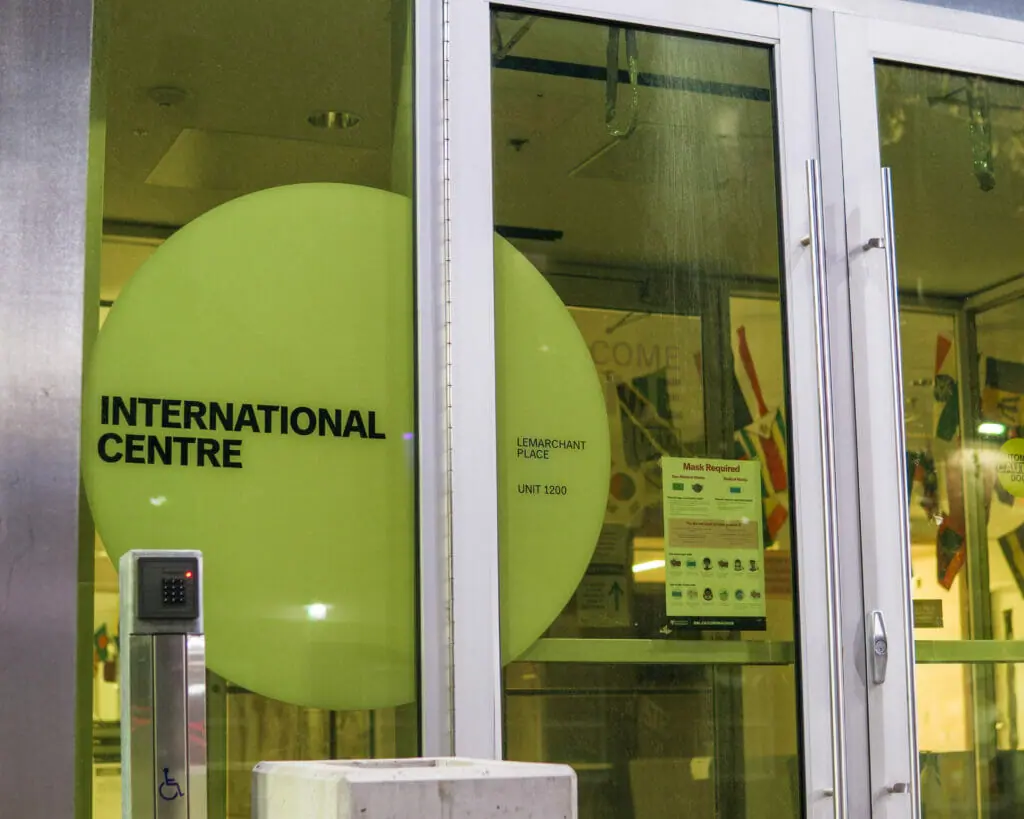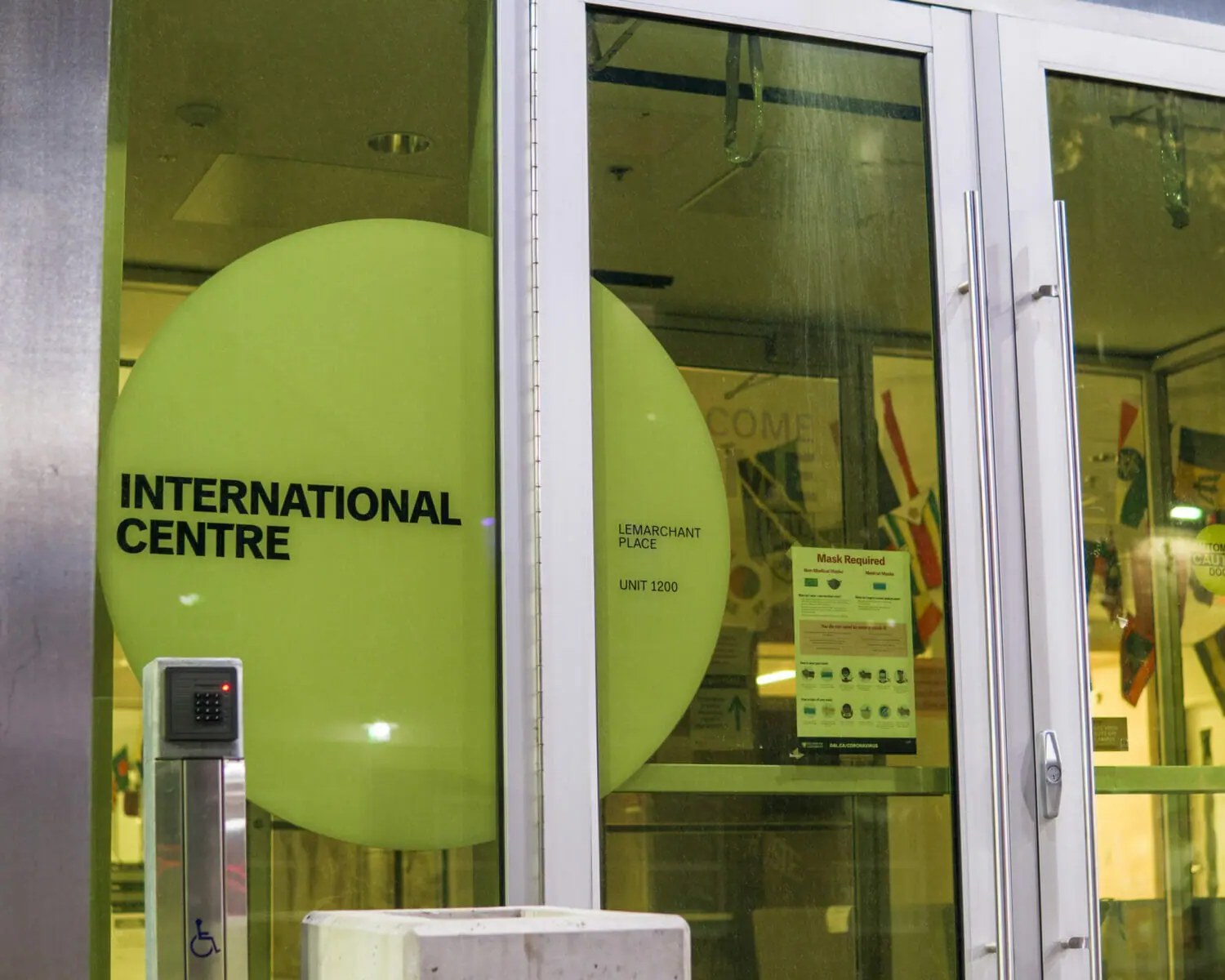Editors Note: This article was updated on Nov. 18 to include the update that the hotel self-isolation cost is $1,528 and Dalhousie University will be paying 50 per cent of that cost for each international student, except those who are already in Nova Scotia and decide to leave the country at any point.
On Nov. 3, Dalhousie University was officially added to the list of universities permitted to welcome back international students who wish to return to Canada. But as they attempt to complete virtual courses in different time zones while paying almost double the price of their Canadian classmates in undergraduate tuition, international students are left frustrated by Dal’s handling of their situation during the pandemic.
Additionally, international students are concerned about their budgets and limited job opportunities available in Halifax. They must now pay to stay in a Halifax hotel for a government-mandated 14-day self-isolation.
Dal will be paying 50 per cent of the hotel cost for each student, which is $1,528, according to an email sent to students on Nov. 18 from Verity Turpin, acting vice-provost of student affairs and Frank Harvey, acting vice-provost academic. The email also said Dal would not cover costs for international students who are already in Nova Scotia and decide to leave and return to Canada at any point.
In an email to the Dalhousie Student Union (DSU) on Nov. 3, Verity Turpin, said recent negotiations had resulted in a price tag of $1,625 for the isolation. This email was forwarded to the Dalhousie Gazette.

Dal spokesperson Janet Bryson said in an email to the Gazette on Nov. 4 that the university was still working to get “the best rates for students.” Bryson also said the university would not provide the name of the hotel international students are staying in for their self-isolation “due to the privacy of those students.”
The DSU sent a list of questions to Turpin after receiving multiple concerns from students regarding the 14-day self-isolation.
Mazen Brisha, a third-year kinesiology student from the United Arab Emirates who will be spending his fall term at home, says he feels like the university only wants international students to come back for monetary gain.
“I just think that the overall consensus is that, like, it doesn’t feel like we’re very welcome anymore,” said Brisha.
Why students can come back now
Starting on Oct. 20, Immigration, Refugees and Citizenship Canada released the first version of a list of Designated Learning Institutions that have been approved to allow international students who are living outside Canada back to their campuses. On Nov. 3, the list was updated to include Nova Scotian universities after their plans for welcoming students had been approved by the provincial government under their new International Student Institutional Readiness: Public Health Requirements guidelines.
Bryson said the university developed its plan to receive students in consultation with the Nova Scotia Department of Advanced Education and Labour.
However, international students were not consulted about the process they would be undertaking to return to Halifax, Turpin said in her email to the DSU.
This lack of consultation is something the union is “quite concerned about,” said DSU President Maddie Stinson.
Stinson also said the union wants to know why the provincial government is “choosing to increase monitoring solely for international students when some international countries have fewer cases than, for example, the province of Ontario.”
Returning to Halifax
International students such as Fabian Bong, a third-year chemistry and computer science student from Germany, are anxious to return to Halifax. But the process so far has not been simple.
Bong made arrangements to travel back to Halifax earlier this fall, where he’ll be living in LeMarchant Place residence. He planned to arrive on Oct. 20 and made arrangements with Dal to quarantine in Howe Hall, which is where Canadian students from provinces outside the Atlantic bubble quarantined before entering residence.
“Then, the day I wanted to fly, the rules changed,” Bong said.
Prior to Oct. 20, international students who could prove it was necessary for them to be on campus for their studies and had a valid study permit dated before March 18 could return to the country. Then, new policy came into effect and the federal Designated Learning Institutions list was created.
Upon learning of the list, Bong called Dal and was told the university wouldn’t be added to the list until a later date. When he later found out Dal would be included on the list, he immediately booked his flight. But at this point, Bong still believed he would be completing his self-isolation in Howe Hall.
The mandatory hotel quarantine came as a surprise to Bong. He found out about it while browsing the Dalhousie subreddit on Reddit. He was reading a post about the possible Dalhousie Faculty Association strike where someone commented the university was greedy and would be charging $2,000 for international students to self-isolate. This figure was based on an early estimate reported by the CBC and attributed to Bryson. The comment on Reddit was later edited to note it was the province mandating hotel quarantines, not the university.
At first, Bong wasn’t convinced as he believed he had already made arrangements to self-isolate with the university.
“I was like, well, they didn’t charge me. Why would they charge us now?” he said.
His next thought was the hotel isolation requirement must only be for students living off campus. But a few days after, he was on a call with the Dalhousie International Centre who informed him the hotel stay was required for every international student returning to Halifax.
For Bong, this new expense is concerning. He already budgeted his finances for the term and had been spending some of his money in Germany under the impression he was saving money by not being in Halifax.
“It’s like someone just running up and saying: ‘Hey, you want to live in Canada? Pay that much money,’” he said.
Luckily, Bong has a job lined up in the chemistry department at Dal where he’ll be attempting to work the 20 hours a week he is allowed as an international student.
The DSU asked Turpin why students who had already arranged their own self-isolation accommodations had to stay at a hotel.
“The monitoring requirements outlined in the International Student Institutional Readiness: Public Health Requirements document are impossible to meet if international students are quarantining in their own homes. The [provincial] Department of Labour and Advanced Education has confirmed this,” Turpin replied in the email.
The requirements stipulate the university must be responsible for monitoring the quarantined students during their 14-day stay.
Brisha says he understands the provincial government’s responsibility to keep Nova Scotians safe by ensuring students isolate, but he takes issue with their methods.
“I understand where it’s coming from, but for them to pile on and extenuate and sort of enhance the financial strain that international students are already under by charging you [$1,528] just for the quarantine period, it’s outrageous and it’s preposterous, in my opinion. But unfortunately, I am not surprised,” Brisha said.
International students can’t go on like this
For Brisha and Bong, virtual courses have significantly altered the way they live their daily lives.
Brisha has sacrificed his sleep schedule to be able to succeed academically.
“It’s been very, very challenging, easily the most challenging semester in my academic career,” he said. “It’s completely flipped my daily schedule.”
Brisha goes to sleep at around 7 a.m. on most days, averaging about three to four hours of sleep a night.
“Basically I still live by Halifax time, but get minimal sleep,” he said.
Due to his workload, Brisha says he hasn’t had a chance to consider whether this lifestyle can be sustainable, though he plans to return to Halifax in the winter.
“I haven’t really had a proper chance to consider anything in the long run. It’s sort of the theme of complete tunnel vision, just trying to take each day as it goes,” he said. “I finish my assignments at seven in the morning and get a few hours of sleep, then go to work in the morning. And I think that structure of life is very toxic and very unhealthy, for obvious reasons.”
For Bong, the change is not as drastic. His school day starts at 3 p.m. and ends around 10 p.m. But he has had difficulty maintaining a social life as his friends enrolled in German universities have been on a break for the past few months. This means his only free time in the mornings is often when his friends are sleeping in.
On top of the challenges they face in their studies, international students are still paying the highest tuition of any type of student at Dal.
“The main perspective that I have, as well as like most international students I’ve spoken to, is that we just feel like the quality of education is severely lacking, especially for the price,” Brisha said.
According to Dal’s online fee calculator, an international student pursuing an undergraduate arts or sciences degree pays an average of $21,371.46 in tuition and incidental fees for one year. For a Canadian citizen, the average cost of one year is $9,365.46.
Brisha said international students feel like they are simply dollar signs in the eyes of Dalhousie.
“They’re not even trying to hide it anymore with, ‘Hey, we love international students. You guys add diversity and inclusion and all that stuff to our campus.’ No, like it’s very clearly ‘We need you for money now,’” he said.
Will this affect Dal’s global reputation?
According to Brisha, he and multiple friends decided to apply and go to Dal based on word of mouth.
At the high school Brisha attended in Dubai, students who went abroad to tour universities would oftentimes give presentations on the schools they visited for other students.
After the way international students have been treated by the university this year, Brisha says the word of mouth has turned sour.
“I think Dalhousie University cannot possibly understand or comprehend [the damage] both financially and reputation-wise that will be incurred from this semester and this year in general,” Brisha said.


Recent Comments